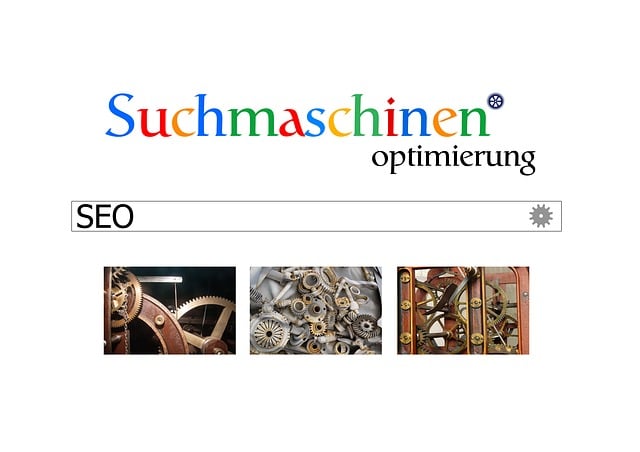Understanding affordable SEO web design is crucial for businesses aiming to enhance online presence. By integrating visually appealing design with optimization strategies like keyword research, meta tagging, and structured data markup, websites achieve higher organic search rankings. This drives traffic, reduces advertising costs, and boosts authority. Using content management systems (CMS), choosing user-friendly platforms, on-page optimization, off-page SEO, and analytics tools are key to achieving quality SEO web design affordably. Emerging technologies like AI and machine learning will further revolutionize the field.
“Discovering affordable SEO web design isn’t just about saving money; it’s about unlocking your business’s online visibility. In today’s digital landscape, a well-optimized website is crucial for success, but high costs shouldn’t deter entrepreneurs. This article demystifies ‘affordable SEO web design’, guiding you through essential components like on-page and off-page SEO techniques, effective content optimization, and choosing the right development platform. Learn strategies to reduce costs without compromising quality, and stay ahead with future trends in this evolving field.”
Understanding Affordable SEO Web Design: Unlocking Online Visibility

Understanding affordable SEO web design is key to unlocking online visibility for businesses and organizations. It involves creating websites that are not only visually appealing but also optimized for search engines, ensuring they rank higher in organic search results. By integrating essential SEO strategies from the outset, website owners can attract more visitors, improve user experience, and ultimately drive conversions.
This approach focuses on delivering high-quality design coupled with effective technical SEO elements, such as keyword research, meta tagging, and structured data markup. The goal is to create a website that not only looks great but also communicates clearly with search engines, resulting in better visibility, increased organic traffic, and improved online presence.
The Role of Search Engine Optimization (SEO) in Digital Marketing

Search Engine Optimization (SEO) plays a pivotal role in digital marketing, acting as the bridge between businesses and their target audiences online. It’s a strategy that focuses on enhancing a website’s visibility and ranking on search engines like Google, Bing, or Yahoo. By optimizing various elements of a site—from content to structure, keywords, and user experience—SEO ensures that when potential customers search for products or services relevant to what a business offers, the site appears prominently in the results. This increased online visibility drives organic traffic, significantly boosting marketing efforts without incurring direct advertising costs.
In the competitive digital landscape, effective SEO web design is essential for businesses to stay relevant and accessible. It involves a meticulous approach to creating content that resonates with search engine algorithms while also providing value to human visitors. By integrating relevant keywords naturally into content, crafting compelling meta tags, ensuring mobile responsiveness, and building high-quality backlinks, SEO strategies elevate a website’s authority and credibility in its niche. This, in turn, attracts more qualified leads and fosters stronger connections with the audience, ultimately contributing to business growth and success.
Key Components of an Effective SEO-Friendly Website

A successful SEO web design goes beyond aesthetics; it’s a strategic blend of technical, content, and user experience elements. Firstly, a website must be built on a solid technical foundation, ensuring fast loading speeds, mobile responsiveness, and a structured site architecture that facilitates easy navigation for both users and search engines. Efficient use of headings, meta descriptions, and alt tags is crucial to enhancing visibility and providing context to search algorithms.
Additionally, high-quality content creation plays a pivotal role in effective SEO web design. This involves crafting compelling copy that engages visitors while incorporating relevant keywords naturally. Optimizing images with descriptive file names and alt text further bolsters the site’s SEO potential. Internal linking strategies and external references to authoritative sources also contribute to building a robust online presence, making your website an invaluable resource for users and search engines alike.
Strategies to Reduce Web Design Costs Without Compromising Quality

Many businesses seek affordable SEO web design solutions without sacrificing quality, and there are several strategies to achieve this goal. One effective approach is to focus on content management systems (CMS) that offer flexibility and scalability at a lower cost. Using popular CMS platforms like WordPress or Drupal allows for easy website updates and improvements, ensuring your site stays optimized for search engines. Additionally, outsourcing web design tasks to freelance professionals or agencies specializing in affordable SEO services can significantly reduce expenses without compromising quality.
Another key strategy is to prioritize essential features and avoid unnecessary add-ons. By defining clear objectives and must-have elements for your website, you can keep the design process streamlined and cost-effective. Efficient communication with your web designer is vital; discuss options, set realistic expectations, and regularly review progress to ensure the final product aligns with your budget and quality standards.
Choosing the Right Web Development Platform for SEO Success

Choosing the right web development platform is a cornerstone for achieving SEO web design success. In today’s digital landscape, platforms that offer both robust functionality and built-in optimization tools are essential. Popular options like WordPress, Wix, and Shopify not only provide user-friendly interfaces but also come with pre-installed features that enhance search engine visibility. These include structured data markup, meta tag customization, and responsive design—all vital for a strong online presence.
Additionally, consider platforms that integrate seamlessly with SEO services and analytics tools. This ensures that you can track your website’s performance effectively and make data-driven adjustments to improve rankings over time. By aligning your web development platform with your SEO goals, you’re taking a significant step towards making your site more accessible and attractive to search engines, ultimately driving better organic traffic.
On-Page SEO Techniques: Optimizing Your Website Content

In the realm of affordable SEO web design, on-page optimization is a cornerstone strategy that directly influences your website’s search engine rankings. Optimizing content involves crafting compelling and keyword-rich text that resonates with your target audience while adhering to best practices for SEO web design. This includes integrating relevant keywords naturally throughout your site’s copy, ensuring meta titles and descriptions are tailored to specific pages, and enhancing header tags (H1, H2, etc.) for better structure and searchability.
Effective on-page SEO techniques also encompass optimizing images with alt tags, improving page load speeds, and implementing structured data markup to provide search engines with more context about your content. By focusing on these aspects, you not only enhance the user experience but also make it easier for search algorithms to understand and index your web pages, ultimately driving organic traffic to your site in a cost-effective manner.
Off-Page SEO and Its Impact on Search Engine Rankings

Off-page SEO is a crucial component of any effective SEO web design strategy. It refers to activities outside your website that impact your search engine rankings. Building high-quality backlinks from reputable sources, engaging in social media marketing, and managing online reviews are all off-page strategies that signal to search engines the authority and relevance of your site. These efforts contribute to domain authority, which is a measure of your website’s overall trustworthiness in the eyes of search algorithms.
The impact of off-page SEO on search engine rankings is significant. Search engines like Google use complex algorithms to analyze backlinks and social signals as part of their ranking factors. A strong off-page profile indicates that your site is valuable and trustworthy, leading to improved visibility and higher rankings for relevant keywords. This makes off-page SEO a critical aspect of affordable SEO web design, enabling businesses to compete effectively online without breaking the bank.
Measuring and Analyzing SEO Performance: Tools and Metrics

Measuring and analyzing SEO performance is an integral part of any successful SEO web design strategy. To gauge the effectiveness of your optimization efforts, several powerful tools are at your disposal. These range from comprehensive platforms like Google Search Console and SEMrush to more focused applications such as Ahrefs and Moz Pro. Each tool offers unique insights into keyword rankings, organic traffic, backlink profiles, and user behavior on your website, among other critical metrics.
Understanding these metrics is essential for making data-driven decisions. For instance, tracking keyword rankings helps identify areas of improvement while analyzing user engagement metrics reveals content that resonates with your audience. By leveraging these tools effectively, you can continually refine your SEO web design approach, enhancing both the visibility and performance of your website in search engine results pages.
Future Trends in Affordable SEO Web Design

As technology continues to evolve, future trends in affordable SEO web design are set to transform digital landscapes. One prominent trend is the increased adoption of artificial intelligence (AI) and machine learning algorithms. These technologies will play a pivotal role in optimizing content, improving site speed, and personalizing user experiences at scale. AI-driven tools can analyze vast amounts of data to identify patterns and make intelligent decisions, enhancing search engine rankings and user engagement.
Additionally, voice search optimization is expected to gain significant traction. With virtual assistants becoming ubiquitous, designing websites that cater to voice queries will be crucial. This shift requires a focus on long-tail keywords, natural language processing, and structured data markup to ensure content is readily comprehensible by voice search engines. Embracing these trends will enable businesses to stay competitive in the digital arena while providing seamless user experiences through dynamic and adaptive SEO web design solutions.
